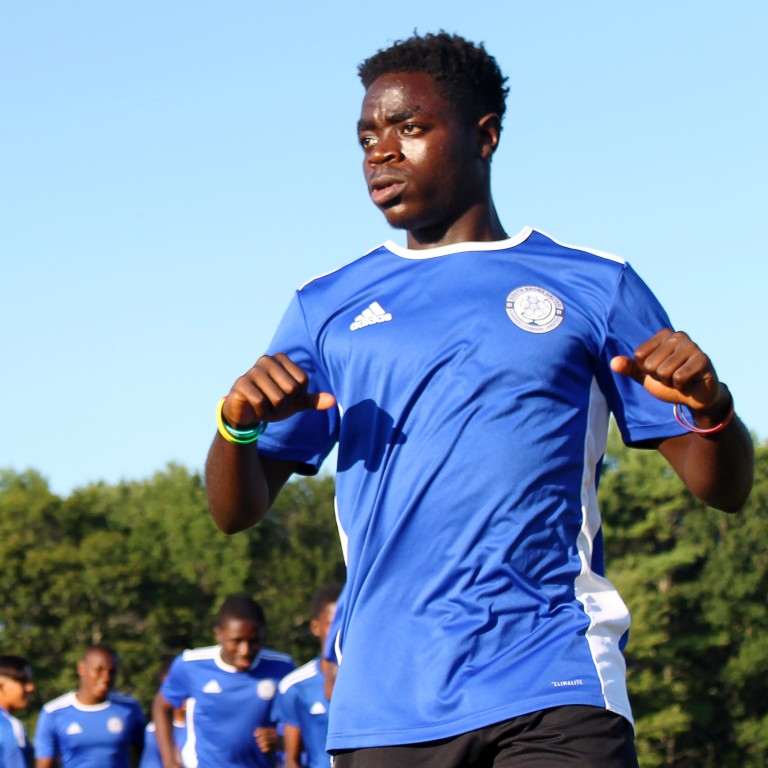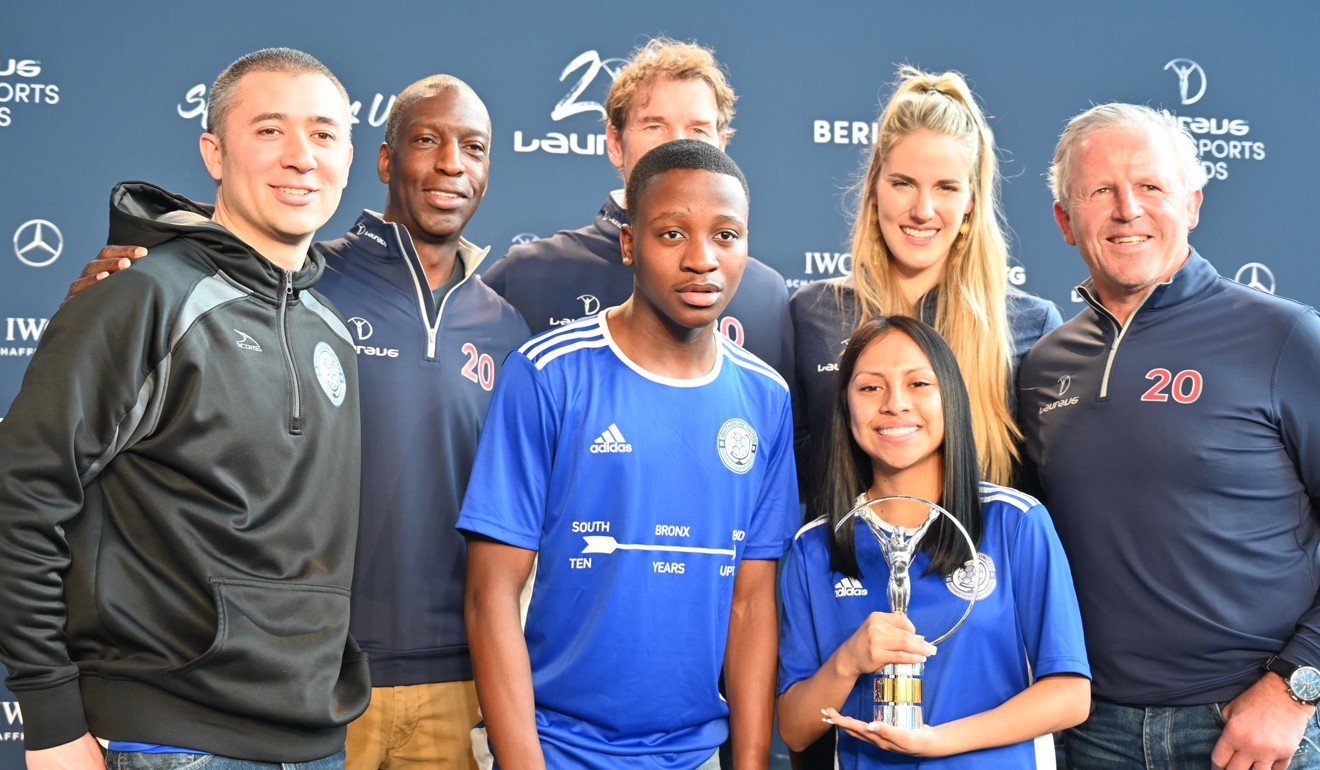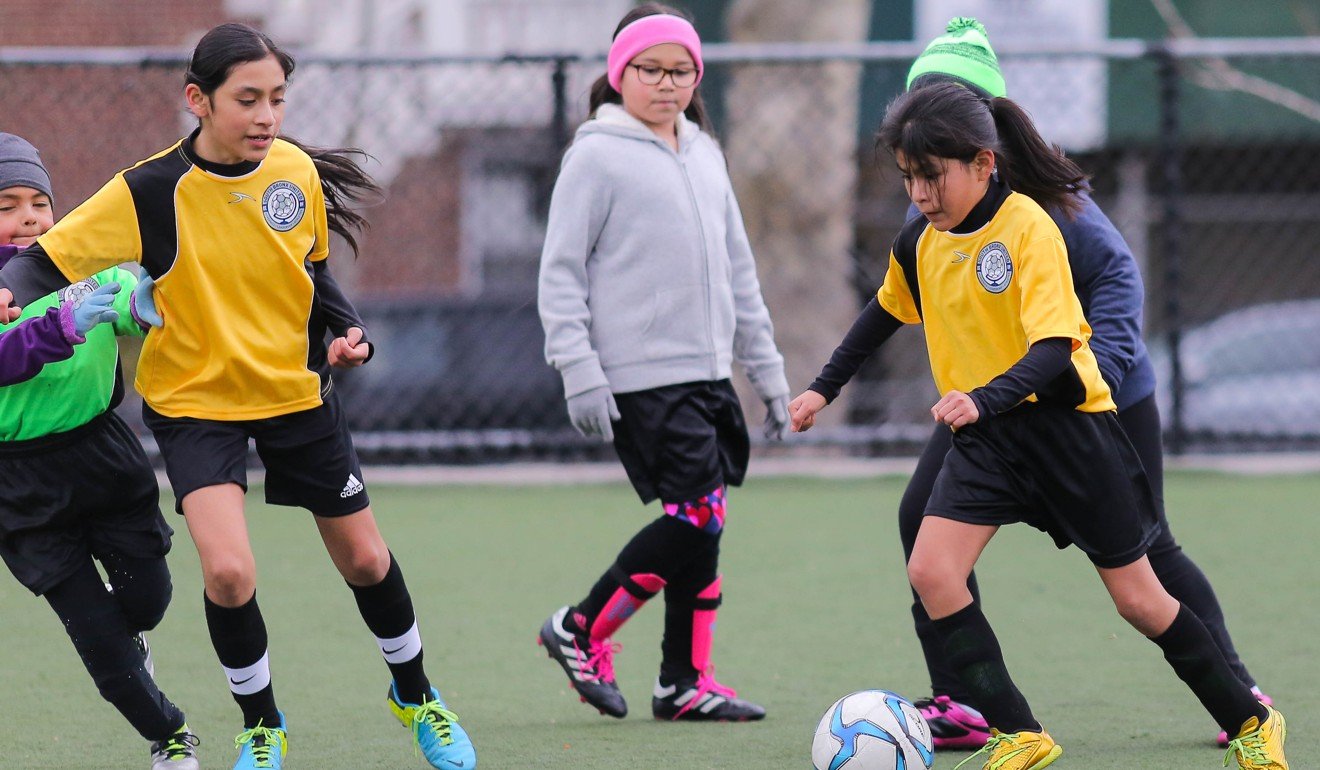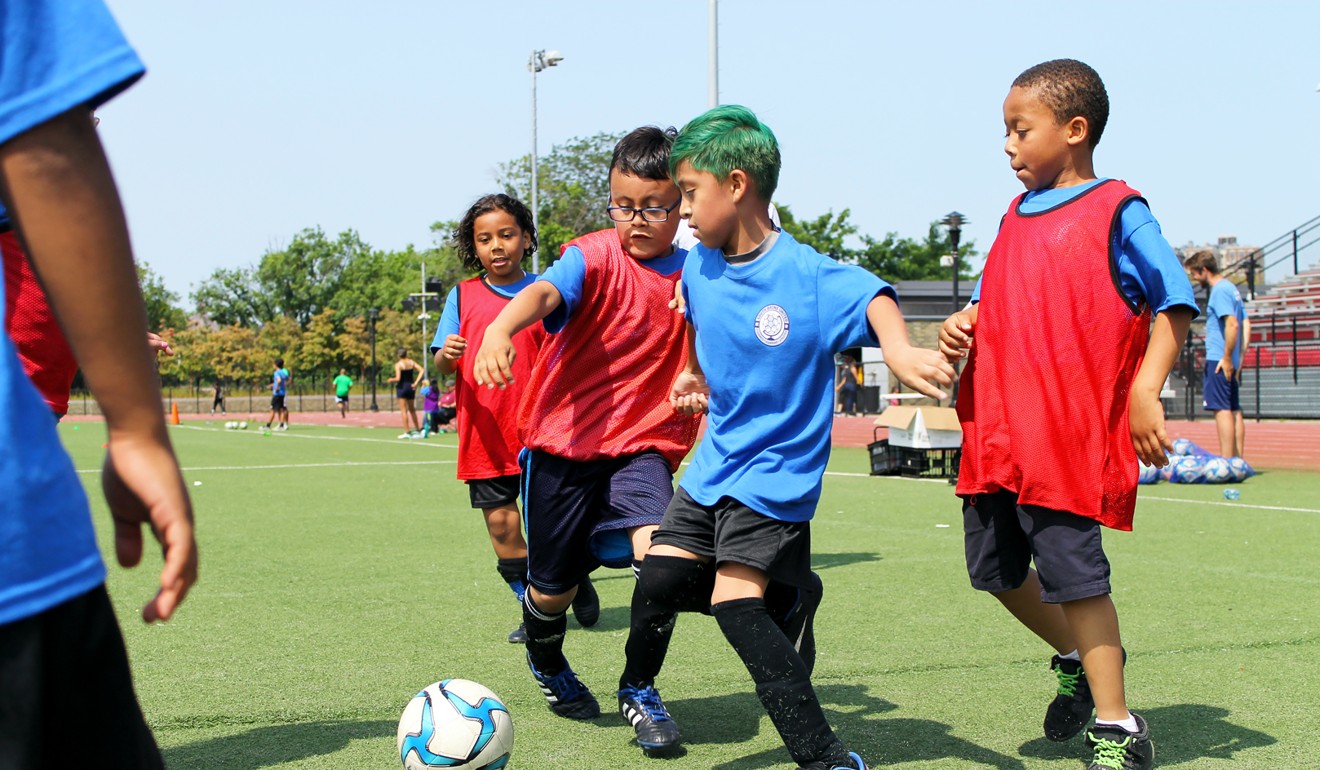
From Hong Kong to The Bronx: how Andrew So’s South Bronx United is helping young immigrant footballers
- South Bronx United co-founder on football’s transcendence in the country’s most impoverished borough
- The youth football programme wins the 2020 Laureus Sport for Good Award this week
Teenagers Mohamed Konate and Maria Martinez had very humble beginnings. They fled the Ivory Coast and Mexico, respectively, at a young age in search for better life opportunities in the United States. They found themselves in the poverty-stricken district of South Bronx, New York City with nothing but survival instincts and a burgeoning interest in football.
Who would have thought that a decade on we would see the pair of high-school seniors posing for photos at a dazzling red-carpet awards event in Berlin this week. Konate and Martinez were representing South Bronx United (SBU) – a not-for-profit football programme striving to improve the lives of disadvantaged youths in the area’s most underprivileged communities – as it scooped the prestigious 2020 Laureus Sport for Good Award.
Konate and Martinez are just two of many success stories since the project’s founding in 2009. Not bad at all, considering the 1.4 million-strong Bronx population was deemed the nation’s poorest with 49 per cent of its children living below the poverty line, according to the US Census Bureau in 2010. That percentage dropped to 40 last year – but still much higher than the city average of 27.
Enter Andrew So, a former public school teacher in the low-income neighbourhood of Morrisania, southwest Bronx. SBU was the brainchild of So and his wife, Steph, having spent years in a borough widely regarded as the country’s most densely populated and ethnically diverse area. And birthplace of hip-hop.

“South Bronx has the highest poverty rate of any district in the United States, despite being just a few subway stops from the centre of wealth in the world, Manhattan,” said executive director So, who proudly accepted Laureus’ “tremendous contribution to society” award first presented by Nelson Mandela in 2000.
“We started in 2009 and my background was as an educator. Whilst there I realised pretty quickly that the young people I was teaching had a lack of out-of-school athletic opportunities, so I started a few projects coaching basketball, a little martial arts … and then I coached soccer.”
So attributed his deep love for “the beautiful game” to his Hong Kong-born, football-loving father, who emigrated to the US on a university scholarship.
“He’s definitely shared stories with me about working in the school cafeteria to pay off his college expenses,” recalled So, adding that his wife’s parents are also from Hong Kong and his grandmother is still based in the city. “Growing up he definitely brought a love of soccer and sports to me.
“He ended up going into medicine and became a physician and neurologist – that’s a success story in its own right. That was one of the reasons he went into it, to help people. Certainly in a very different way to our organisation, but he’s imparted some of that on me and my sister, having a life mission and purpose to make a difference in the lives of others.”
So and his modest team of volunteers soon identified that football was far more than a sport; it had the power to transcend the various community lines within a borough made up of roughly 37 per cent immigrants, according to the New York State Comptroller in 2019. South Bronx’ percentage is higher and increasing rapidly.

“We realised that there were kids who had never kicked a ball in their life but loved the social aspect of it. It was keeping them busy during after-school time, which is a vulnerable time for a lot of youth who may be hanging out on the streets, getting involved in risky behaviour with gang-related activity, or – if they’re lucky – just going home to play video games. There was a real lack of productive activities but soccer was an outlet for social positivity,” So said.
“There were all these needs coming up, from education needs where youths were dropping out of school … to immigration, where we had several people come into the country undocumented and provided them with a pathway to work or go to college and get an education.

“Then we had young people from immigrant families, who grew up with soccer in their veins but had nowhere to play. That led to starting South Bronx United as just a single soccer team, to where we are now where we work with about 1,200 boys and girls in the community through our core programme, the SBU Academy.
“One of the beauties of the South Bronx is the diversity of the communities bringing together people from so many different immigrant backgrounds,” So said. “We have folks from Latin America, the Caribbean, West Africa, the Middle East, Eastern Europe … part of the programme is having teams compete and play against folk from other communities, so it’s sometimes a learning experience for other teams and our own.”
To call SBU a football school nowadays would be a disservice. What started as maths workshops, SAT practice and university tours eventually blossomed into academic enrichment, college preparation, social support, leadership development and even legal services for self- or familial immigration issues. Its core programme is around 98 per cent students from immigrant families, while one-third are immigrants themselves.
“Our focus in that programme is not so much about the athletic outcomes as it is the education and life outcomes,” said So, adding that over the past eight years SBU had a 100 per cent high school-senior graduation rate with 94 per cent being accepted to a college thereafter.
“That’s in comparison to about 50 per cent in the South Bronx who get their high school diploma, and a fraction of that who get their college degree.
As the organisation’s stellar work continues into 2020 with now-global recognition and exposure, the cycle must continue. Some of the programme’s graduates have even learned to give back. Konate, for example, has emerged as a leader within the organisation and his community, while Martinez is now a team coach and referee.
“That’s the reason we really exist is to see the impact we have on people and realise that it can’t just be about providing opportunities – we have to think about the outcomes that they ultimately achieve,” So said.

“To be able to see that with so many young people – who aren’t even that young any more – go through the programme and get their college degrees, trying to work for us, or even joining our organisation boards. We’ve hired alums to our staff, which is an incredible feeling that really validates all the steps that we put in place.”
Now equipped with teams across several boys’ and girls’ age groups, SBU intends to strengthen the foundations rather than expand elsewhere. South Bronx is still a long ways away from fixed, after all.

“There’s so much need in the South Bronx that we’re only touching a very small fraction of that,” So said. “If we gained the resources and capacity to expand within the community, there’s so much more we can do to reach more families and more young people.
“We’re hoping five years from now we can establish a youth centre – right now we work in various places – where the community can have a home to come to.”

